This post contains affiliate links from which I may receive a small commission, at no extra cost to you. In no way does this affect my opinion or the information I provide on the product. Please read my disclaimer for more info.
Sugar is such a controversial topic at the moment.
You have those who decide to ban all sugars and stick to a diet of mainly protein and fat.
You have others who include plenty of natural sugars in their diets but don’t touch anything that has refined sugar.
And finally, there are those who say that all sugars have the same effect on your body, regardless of the source, so you might as well eat what you prefer.
If you’re confused, here’s the real truth on natural sugar vs refined sugar.
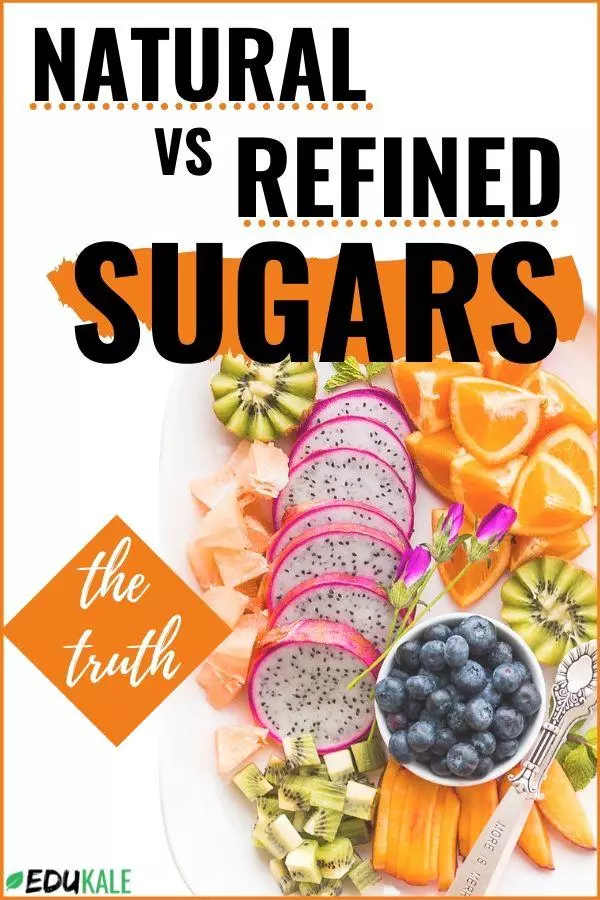
What is sugar?
Table sugar, the white sugar that is most commonly used, is called sucrose.
It is made up of a molecule of fructose (fruit sugar) and a molecule of glucose. It is naturally found in green plants, but is also added to a lot of processed foods.
Sucrose is a disaccharide that must be broken down before it is absorbed. Glucose and fructose are both monosaccharides that can be absorbed right away.
Fructose, glucose, and sucrose all contain 4 calories per gram. Fructose has the highest sweetening power, followed by sucrose and then glucose. Here is some more information on what sugar is if you’re interested.
Natural sugar VS refined sugar.
Basically, all of these sugars occur naturally in different foods. However, you can also find them added to processed foods.
In order to do this, sucrose is typically extracted from sugar canes or sugar beets, and added to the food. You can also find high-fructose corn syrup, which is extracted from corn starch.
The composition of natural sugar vs added sugar is actually very similar: it’s just a mix of glucose and fructose. However, that doesn’t mean that the effect they have on your body is the same.
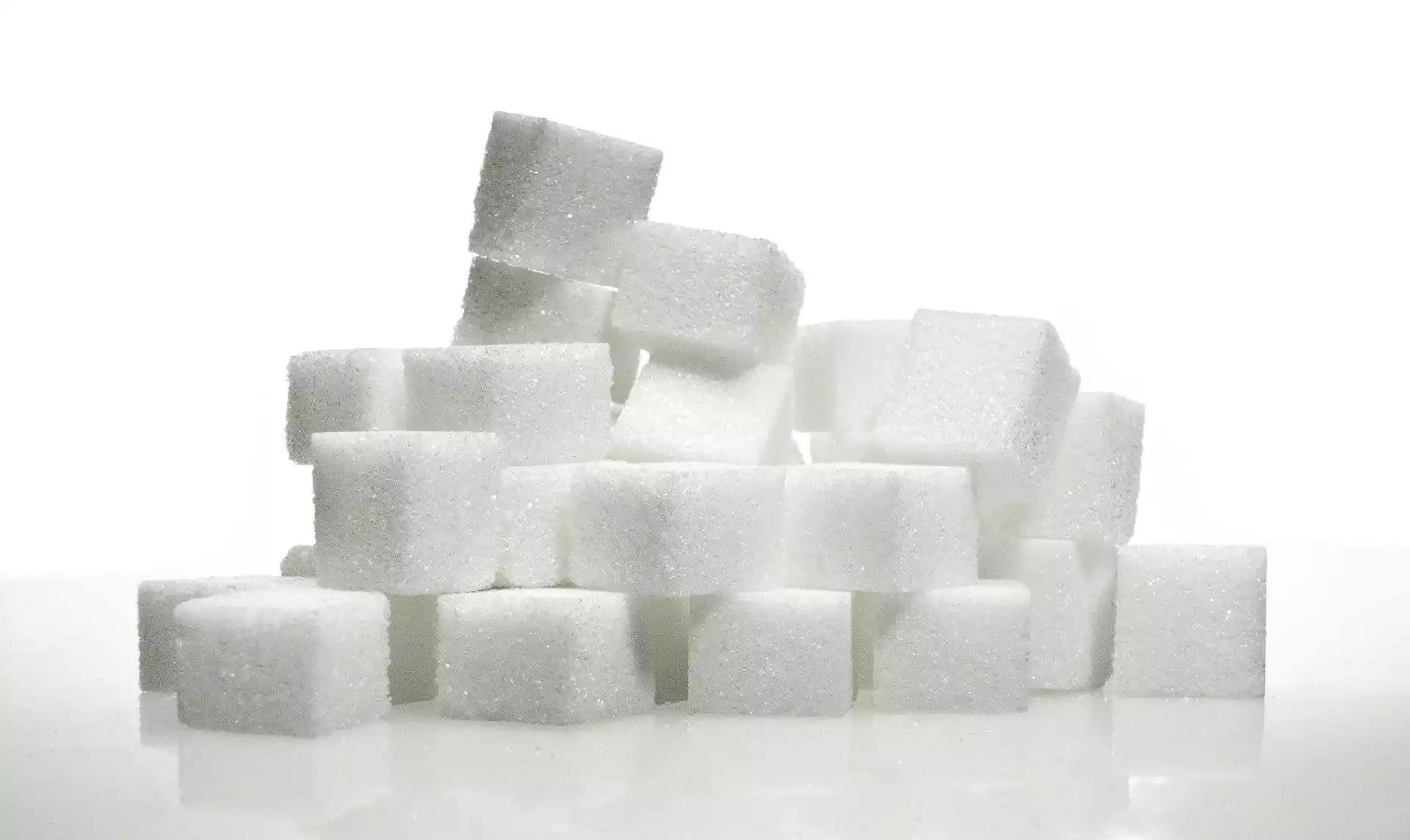
The absorption and effects of different sugars
First, let’s look at how sugar is metabolized.
Glucose is absorbed directly by your small intestine and goes into your bloodstream and then your cells [1]. It raises your blood sugar pretty quickly. Fructose is also absorbed by your small intestine, but before being used by your cells, it must be converted into glucose by your liver [2]. It raises your blood sugar levels more gradually, without stimulating the secretion of insulin [3].
Sucrose is broken down into glucose and fructose in your small intestine before being absorbed as described above.
Numerous studies have shown the dangerous effects fructose could have on your body.
Fructose is linked to increasing rates of obesity, hypertension, metabolic syndrome, type 2 diabetes, insulin resistance, nonalcoholic fatty liver disease… [4], [5], [6], [7].
These effects generally happen to a lesser extent with glucose consumption instead of fructose.
As mentioned previously, fructose does not stimulate insulin secretion, and insulin regulates leptin, which is the hormone that signals fullness. Less insulin means less leptin which means more chances of still feeling hungry after eating.
In time, eating fructose over glucose could lead to weight gain [8].
And guess what: this all happens pretty much the same way whether you’re ingesting natural fruit sugar or refined sugar from a cupcake. Your body can’t tell the difference [9].
So does this mean that all sugars are bad for you and that you should limit your fruit intake?
Well, NO.
As usual, things aren’t as simple.
Why fruit sugar is better than refined sugar
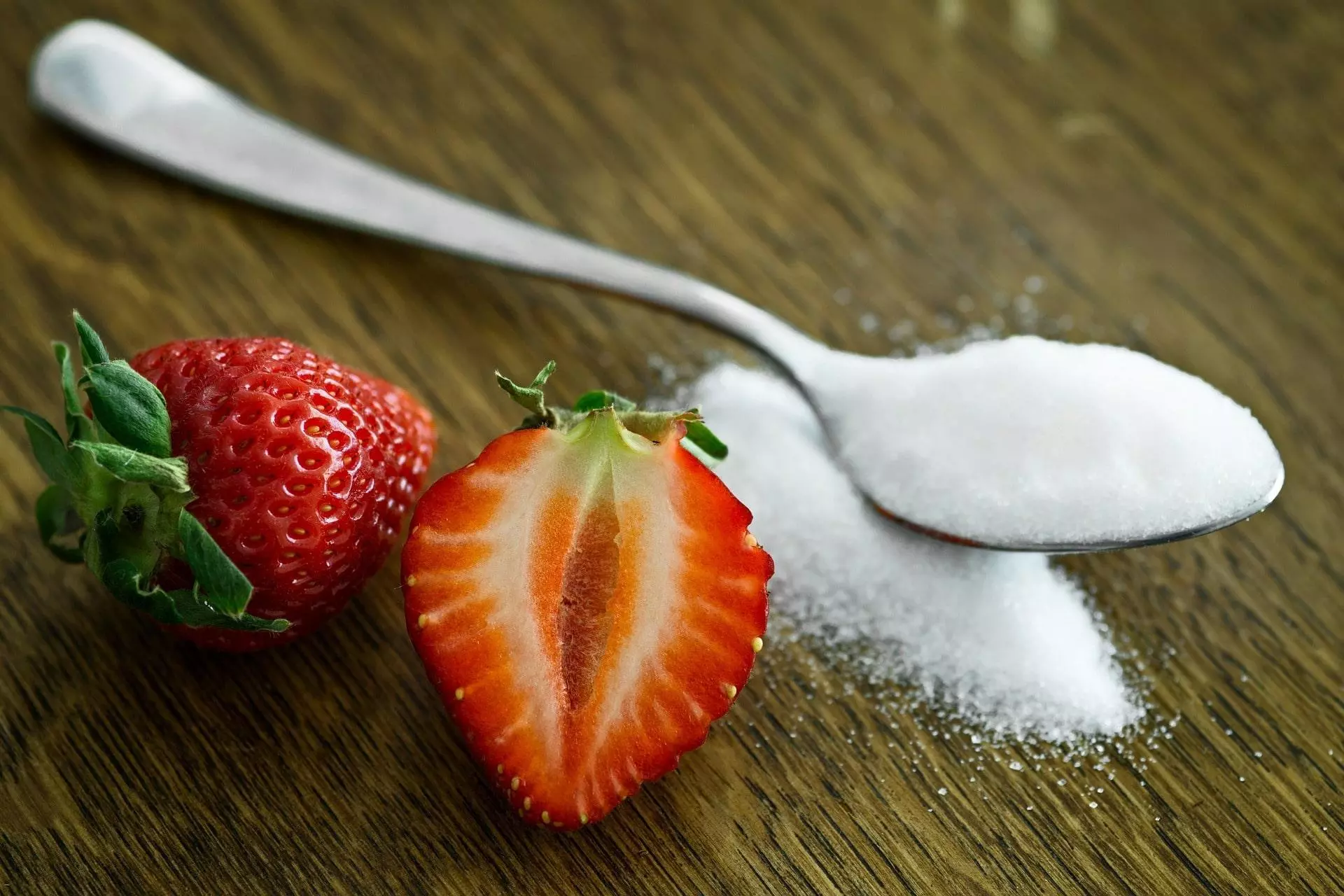
Even if the fructose in fruit is the same molecule as the fructose in high fructose corn syrup, their effects are radically different.
While industrial fructose is a risk factor for metabolic alterations, that is not the case for fruit fructose [10].
In fact, multiple studies have shown that people who eat more fruit and vegetables have greater health benefits and lower risks of diseases.
Eating fruit and vegetables is associated with a reduced rate of coronary heart disease [11], a reduced risk of type 2 diabetes [12], a reduction in strokes [13], a reduced risk of cancer [14], [15], and can improve your psychological well-being [16].
Looking specifically at fruit, studies [17] in patients with type-2 diabetes have shown that restricting it doesn’t have any incidence on the patients’ body weight or waist circumference.
This is interesting because some health professionals believe that type 2 diabetic patients should restrict their fruit intake for better glycemic control.
In addition, a review of studies [18] showed that fresh fruit consumption did not contribute to excess energy intake, adiposity, and obesity, and could even reduce them.
This study [19] also showed that higher fresh fruit consumption was associated with lower risks of diabetes. For people with diabetes, it was associated with lower risks of death and development of major complications.
This could be surprising as the energy content of fruit primarily comes from simple sugars. This is in fact a paradox: fruit contains a lot of sugar, yet has anti-obesity effects [20].
If you’re wondering if it’s possible to eat too much fruit, a few studies [21], [22] have put this to the test. People ate 20 servings of fruit a day for a few weeks or months, and reported no adverse effects.
Of course, I don’t necessarily recommend eating this much fruit: I just want to emphasize how different the effects of sugars are in fruit and in refined foods.
The mechanisms aren’t entirely understood, but here are a few reasons why this could be.
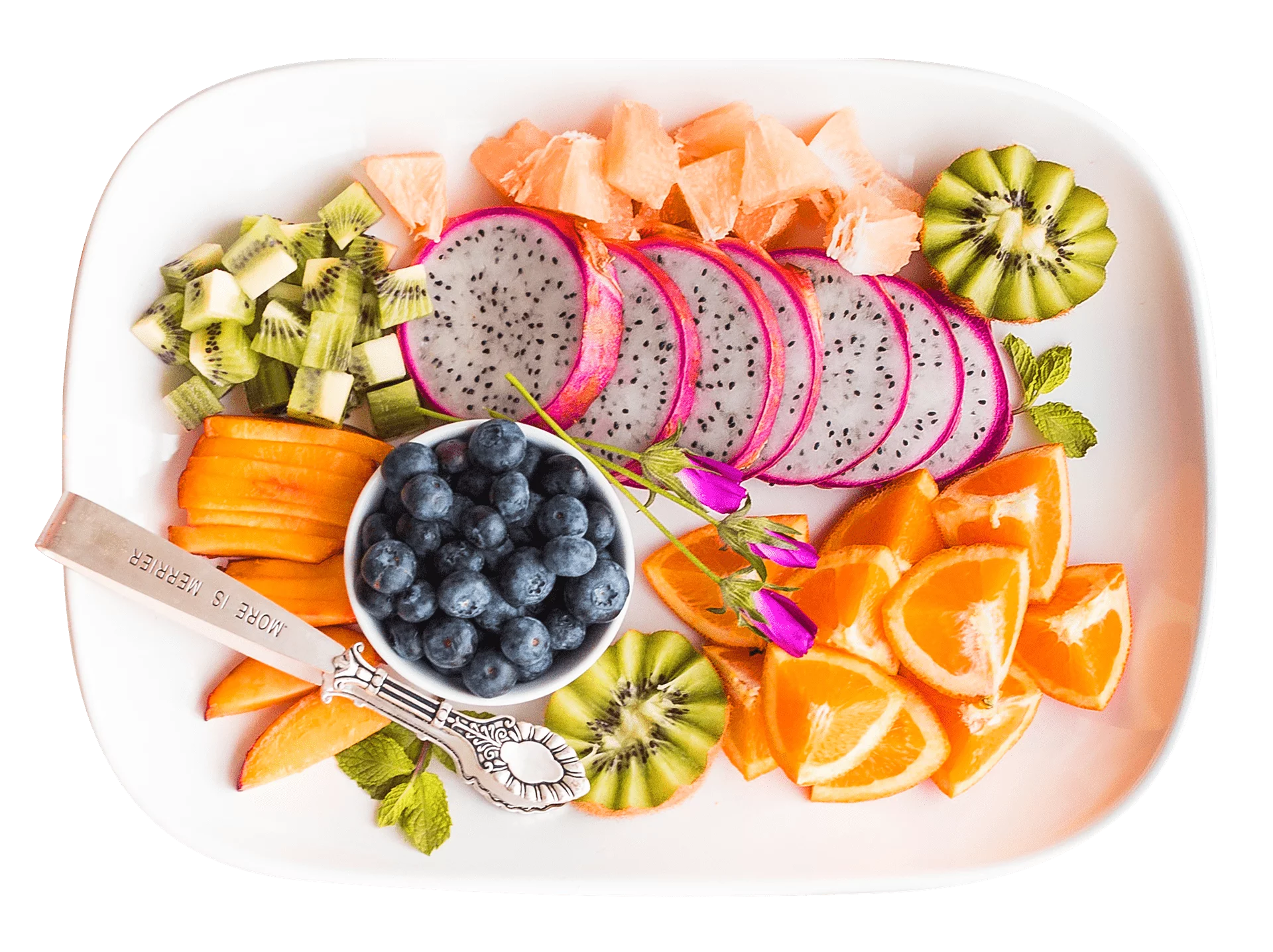
First of all, fruit contains many healthy nutrients (antioxidants, vitamins, phytochemicals, fiber…) that aren’t present in processed sugar.
Fiber helps slow down the absorption rate of sugar, preventing blood sugar spikes. It also slows down general food digestion and fills up space in your stomach, which keeps you fuller for longer.
This is why eating an orange will fill you up much more than drinking its juice. Read this article for more health benefits of fiber and which fiber-rich foods to eat.
In addition, it’s pretty difficult to get too much fructose from fruit. The natural water, fiber, and time it takes to actually eat the fruit will automatically encourage you to regulate your portions.
You would need to eat two medium-sized apples in order to get the same sugar content as a can of coke. Chances are you would still be able to eat your regular meal after the soda, while it might be harder to do so after the two apples.
And apples are pretty carb-heavy fruits— imagine eating over 400 raspberries to get that same amount of sugar [23]!
(But even if you were able to eat as much sugar from fruit as the sugar found in say 4 cans of soda, it would still be so much better for you!)
What about natural sugar in processed foods?
This question also sparks controversy. If you were to buy fresh fruit juice or a smoothie, chances are the label would read something like “contains no added sugars: only the natural sugars of the fruit”.
So does this mean that the sugar in there is good or bad?
Well, even if the fructose in fruit is healthy, that is because it comes in the actual fruit which has all of the properties listed above.
In addition, you would have to consume around 4 oranges to get the sugar found in one glass of orange juice. Chances are you wouldn’t eat that many: it would take too long and fill you up a lot.
Now compare that to the few seconds it takes to drink a glass of orange juice, and even have a second and third one…
Are natural sweeteners better than sugar?
People are increasingly starting to turn to natural sweeteners instead of processed sugar: but are they actually better?
Typically, they are less refined than table sugar and contain certain nutrients. However, you would need to consume them in pretty big quantities to actually benefit from these nutrients.
It is interesting to note that some natural sweeteners have (slightly) lower glycemic indexes than table sugar, which won’t raise your blood sugar as much. This is the case for agave, coconut sugar, and maple syrup.
Some natural sweeteners offer certain health benefits, such as honey [24] and maple syrup [25].
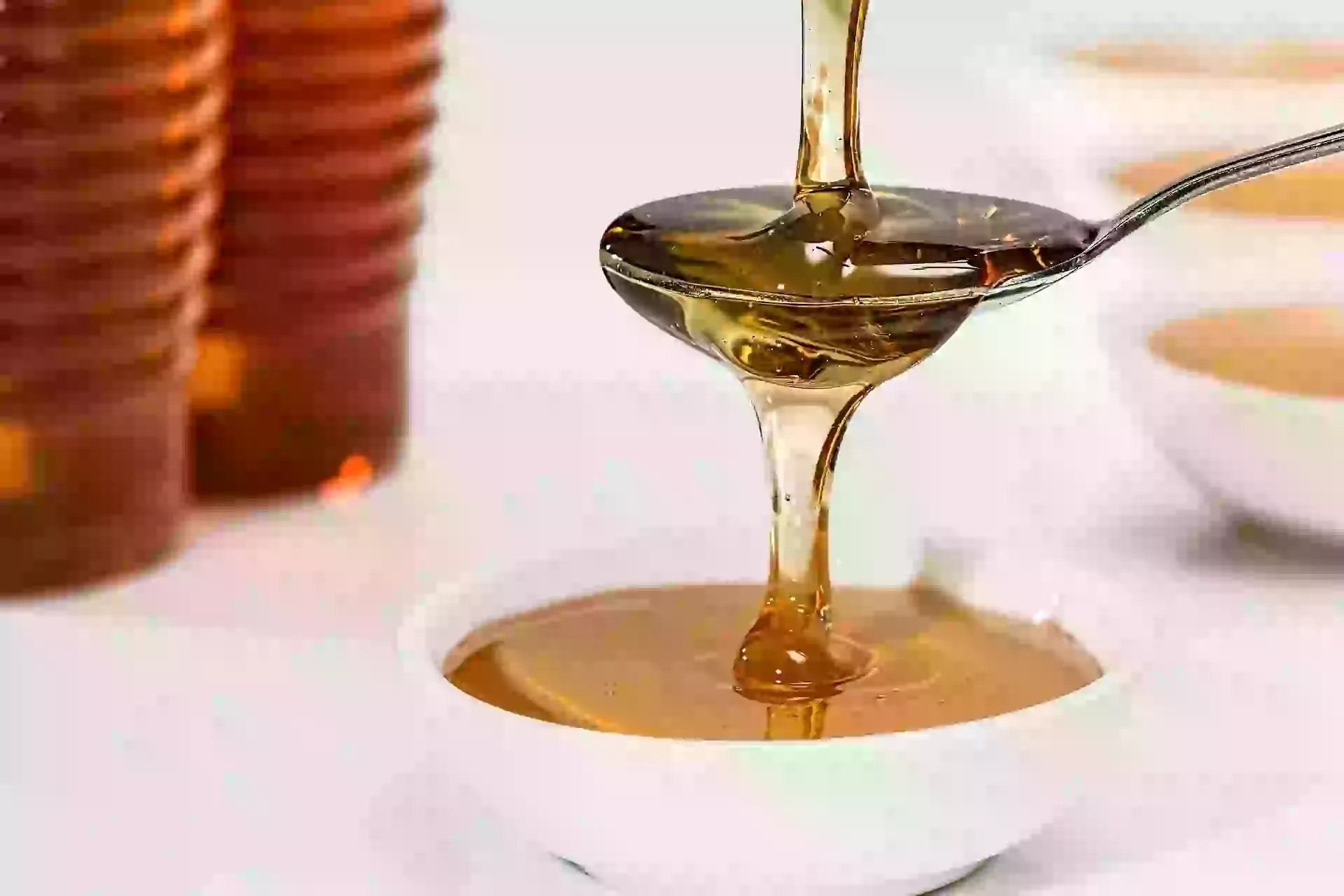
Stevia also raises some questions. It is a natural sweetener that is calorie-free, just like artificial sweeteners. It is refined, however, and far from its natural form.
It has been shown to be a safe sweetening agent, and may also have other benefits such as antibacterial and anti-inflammatory properties. However, some concerns about its impact on fertility have been raised [26].
In the end, these sweeteners are still sugar (with the exception of stevia). While using some of them to replace table sugar may be beneficial, this shouldn’t be a free pass to dump a ton in your food.
For instance, when I sweeten my food with coconut sugar, I find myself using way more of it to get the same satisfaction I usually get from table sugar. This totally defeats the purpose!
PROCESSED SUGAR VS NATURAL SUGAR IN SHORT
Both natural sugars and refined sugars are made up of the same molecules: (fructose and/or glucose), and your body can’t really tell the difference. However, their impact is drastically different.
While the fructose in high fructose corn syrup is linked with many disease risk factors, the one in fruit is associated with a lot of health benefits. As for natural sweeteners, they have certain positive properties but shouldn’t be seen as health foods to be consumed without moderation.
I also want to reiterate that sugar is not poison/toxic/your enemy, as a lot of people think. As long as you eat healthy and balanced meals with plenty of variety, eating sugar— yes, even refined sugar— is totally fine. Remember that demonizing certain foods is never the answer.
Also, if you’re interested in learning why carbs are actually good for you, check out this article !
-Lucie
If you’re interested in nutrition, its impact on our health, and the science behind it, you should definitely read How Not to Die. In this book, Doctor Michael Greger, founder of Nutrition Facts, examines the top causes of death in America and explains how your diet can prevent— and in some cases even reverse— them. His advice is all backed by science and he writes in a very clear and entertaining way. This book isn’t a list of what you already know. It will teach you the keys to living a long healthy life, in a simple and practical way, and without spending fortunes on supplements and pills!
PLUS if you want to take it a step further, you can check out the How Not to Die Cookbook to implement the advice easily!



Comments are closed.